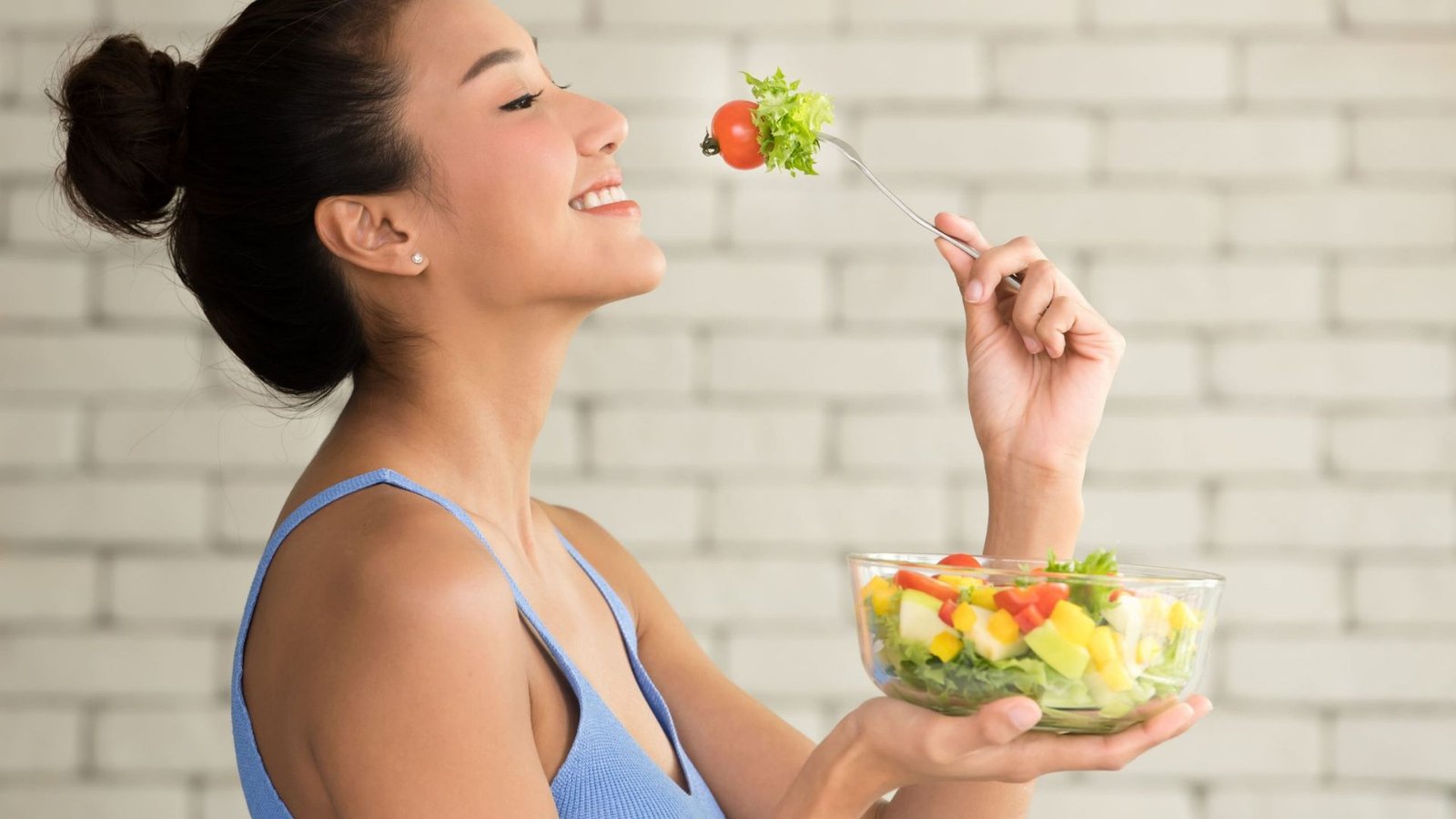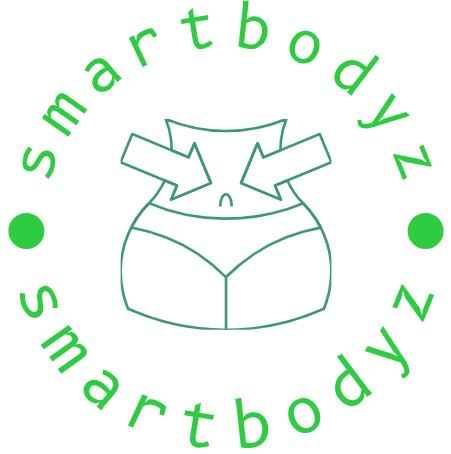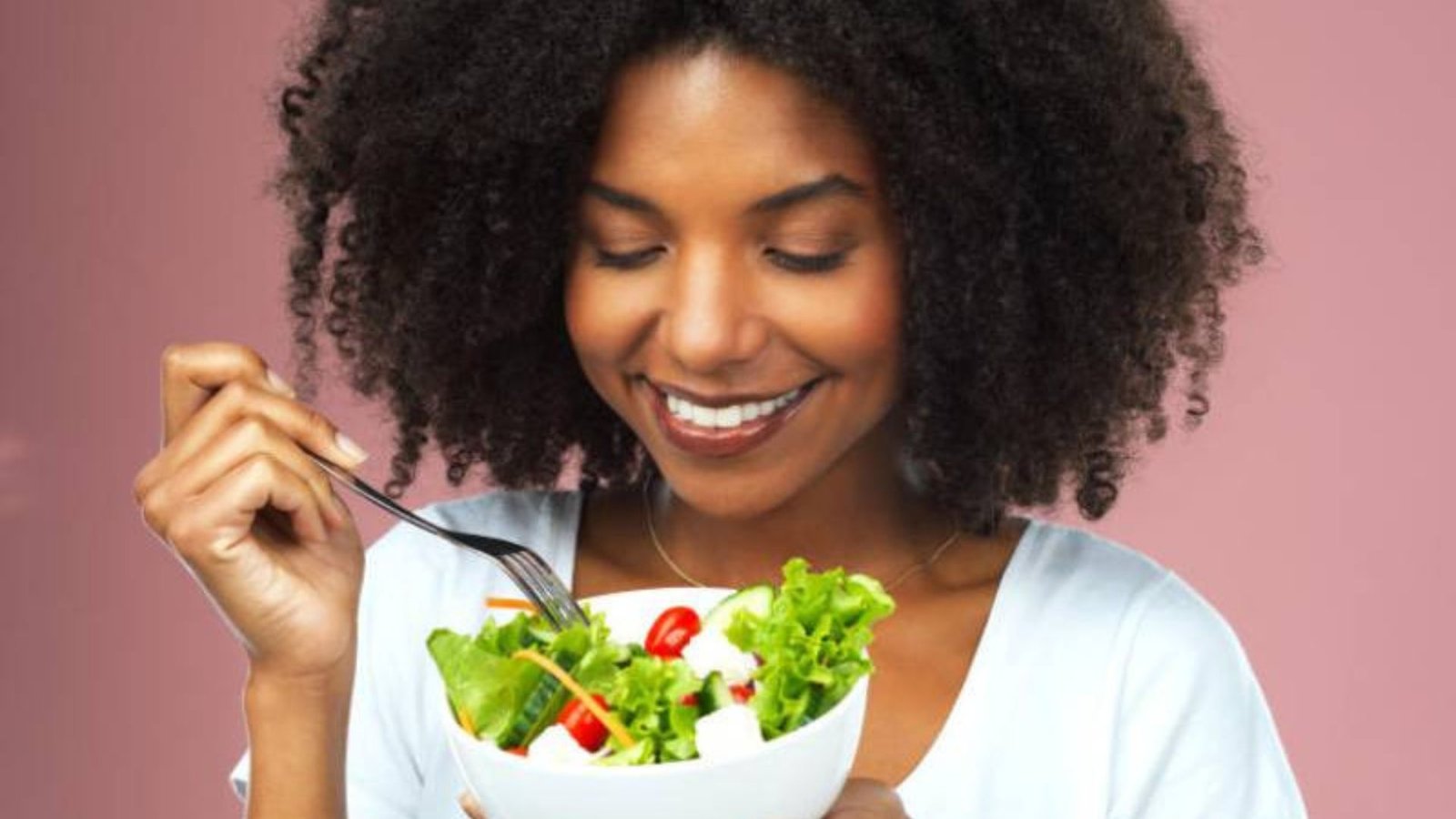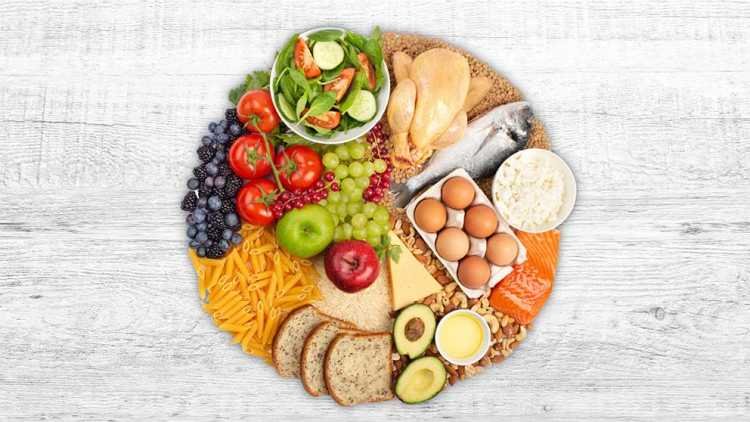What you eat plays a significant role in the health and appearance of your skin and hair. Nutrient-rich foods provide essential vitamins, minerals, and antioxidants that nourish your body from the inside out, resulting in clearer skin and shinier, stronger hair. If you want to achieve radiant skin and healthy hair, it’s important to focus on the foods that promote beauty and wellness. In this article, we’ll explore how healthy food improves skin and hair and the best foods to include in your diet for glowing skin and luscious locks.

1. Vitamin C for Skin Glow
Vitamin C is an antioxidant powerhouse that is essential for healthy skin. It helps in the production of collagen, a protein that gives skin its firmness and elasticity. Collagen is also crucial for wound healing, reducing the appearance of fine lines and wrinkles, and maintaining overall skin structure. Additionally, vitamin C helps protect the skin from damage caused by free radicals, which can lead to premature aging.
Why it’s important for skin:
- Promotes collagen production, keeping skin firm and youthful.
- Protects against free radical damage, reducing signs of aging.
- Reduces dark spots and hyperpigmentation.
Best sources of vitamin C:
- Citrus fruits (oranges, lemons, grapefruits)
- Strawberries
- Bell peppers
- Kiwi
- Broccoli
Add these foods to your diet to help your skin maintain its natural glow and youthful appearance.
2. Omega-3 Fatty Acids for Hydrated Skin
Omega-3 fatty acids are healthy fats that help maintain the skin’s natural moisture barrier. They can reduce inflammation in the skin, preventing conditions like acne, eczema, and psoriasis. Omega-3s also promote healthy hair by nourishing the scalp and reducing hair thinning.
Why it’s important for skin and hair:
- Omega-3s help keep the skin hydrated and reduce dryness and flakiness.
- They support scalp health and encourage hair growth.
- Omega-3s reduce inflammation, which can help manage acne and other skin issues.
Best sources of omega-3s:
- Fatty fish (salmon, mackerel, sardines)
- Chia seeds
- Flaxseeds
- Walnuts
- Hemp seeds
Incorporating these foods into your diet can help maintain hydrated skin and promote stronger, shinier hair.
3. Vitamin A for Skin Repair
Vitamin A is a crucial nutrient for skin health. It promotes cell turnover, meaning it helps your skin shed old cells and regenerate new, healthy ones. Vitamin A also helps reduce the production of sebum, the oil that can contribute to acne when overproduced.
Why it’s important for skin:
- Vitamin A supports skin regeneration and repair.
- Helps reduce acne and breakouts by controlling oil production.
- Promotes healthy skin and prevents dry, flaky patches.
Best sources of vitamin A:
- Sweet potatoes
- Carrots
- Spinach
- Kale
- Eggs
Eating vitamin A-rich foods helps support skin renewal and provides a smoother, more even complexion.
4. Biotin for Healthy Hair
Biotin, also known as vitamin B7, is often called the “beauty vitamin” because it plays a key role in the health of your skin, hair, and nails. It strengthens hair follicles, prevents hair loss, and supports hair growth. A biotin deficiency can lead to brittle hair and skin, making it an essential nutrient for maintaining beautiful, strong hair.
Why it’s important for hair:
- Biotin strengthens hair, reducing breakage and promoting growth.
- It helps improve the overall texture of the hair, making it shinier and softer.
- Biotin supports skin health by maintaining the skin’s natural barrier.
Best sources of biotin:
- Eggs
- Almonds
- Avocados
- Sweet potatoes
- Whole grains
Including biotin-rich foods in your diet can help you maintain thick, healthy hair and vibrant skin.
5. Zinc for Acne-Free Skin
Zinc is an essential mineral that plays a crucial role in skin health. It has anti-inflammatory properties that help reduce acne and other skin conditions. Zinc also promotes the production of new skin cells and accelerates wound healing, making it important for overall skin repair.
Why it’s important for skin:
- Zinc reduces inflammation and can help prevent acne breakouts.
- It promotes skin healing and regeneration.
- Zinc supports the skin’s immune function, reducing the risk of infections.
Best sources of zinc:
- Pumpkin seeds
- Lentils
- Chickpeas
- Spinach
- Cashews
By adding zinc-rich foods to your diet, you can help maintain clearer skin and prevent acne flare-ups.
6. Vitamin E for Skin Protection
Vitamin E is another powerful antioxidant that helps protect the skin from free radical damage. It plays a key role in reducing the appearance of scars, fine lines, and wrinkles, while also promoting skin healing. Vitamin E’s anti-inflammatory properties help reduce redness and irritation in the skin.
Why it’s important for skin:
- Vitamin E protects the skin from environmental damage, such as UV rays.
- It helps reduce the appearance of scars and fine lines.
- Vitamin E nourishes the skin, keeping it hydrated and smooth.
Best sources of vitamin E:
- Almonds
- Sunflower seeds
- Spinach
- Avocados
- Sweet potatoes
Including vitamin E-rich foods in your diet helps keep your skin smooth, protected, and youthful.
7. Iron for Strong Hair
Iron is essential for maintaining strong and healthy hair, as it helps carry oxygen to hair follicles. Without enough iron, the hair can become weak and may start to fall out. Iron also supports the production of collagen, a protein that strengthens hair and skin.
Why it’s important for hair:
- Iron helps transport oxygen to hair follicles, promoting healthy hair growth.
- It supports collagen production, strengthening hair and skin.
- Iron prevents hair thinning and boosts the growth of new hair.
Best sources of iron:
- Spinach
- Red meat (in moderation)
- Lentils
- Tofu
- Pumpkin seeds
Including iron-rich foods in your diet can help reduce hair loss and promote hair growth.
8. Water for Hydration
While not a food, staying hydrated is essential for healthy skin and hair. Drinking enough water helps maintain the skin’s moisture balance, preventing dryness and irritation. Hydration also supports healthy hair follicles, reducing the risk of brittle hair and split ends.
Why it’s important for skin and hair:
- Water keeps the skin hydrated and plump, reducing dryness and irritation.
- It helps deliver essential nutrients to hair follicles, promoting healthy hair growth.
- Proper hydration prevents dandruff and flaky scalp.
Make sure to drink plenty of water throughout the day to keep your skin and hair hydrated from the inside out.
9. Collagen for Skin Elasticity
Collagen is the protein that gives skin its structure, elasticity, and firmness. As we age, our natural collagen production decreases, leading to wrinkles and sagging skin. However, collagen can be replenished through diet by consuming foods that boost collagen production.
Why it’s important for skin:
- Collagen helps maintain skin elasticity, preventing sagging and wrinkles.
- It promotes skin hydration and improves skin texture.
- Collagen supports wound healing and reduces the appearance of scars.
Best sources of collagen:
- Bone broth
- Chicken skin
- Fish (especially the skin)
- Gelatin
- Collagen supplements (if necessary)
Consuming collagen-boosting foods helps maintain firm, youthful skin and supports overall skin health.
Conclusion
Eating a balanced, nutrient-rich diet is one of the most effective ways to improve the health of your skin and hair. Foods rich in vitamins, minerals, and healthy fats can help promote skin elasticity, fight inflammation, and encourage hair growth. Incorporating the best healthy foods for skin and hair—like vitamin C-rich fruits, omega-3 fatty acids, biotin, and zinc—into your daily diet will not only make you feel great but also help you achieve glowing skin and beautiful, strong hair. Healthy skin and hair begin with the right nourishment, so make smart food choices to support your beauty and wellness.









